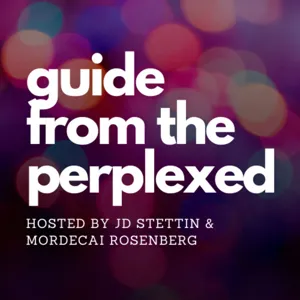Episode 39: Daniel Mate, Co-Author of NYT Bestseller The Myth of Normal, on How to Find Mental Alignment in a Misaligned World

This podcast episode features an interview with Daniel Mate, co-author of New York Times Bestseller -- The Myth of Normal: Trauma, Illness and Healing in a Toxic Culture. Daniel is a composer, lyricist, and accomplished playwright known for his work in musical theater. Daniel is also the creator of the Mental Chiropractic method. Daniel discusses his musical journey, his unique approach to addressing challenges through mental chiropractic, and his insights into parent-child relationships. The episode offers valuable insights for listeners interested in mental health, music composition, and understanding parent-adult child relationship dynamics.
Daniel Mate shares his experiences and insights into his mental chiropractic process, a unique approach that helps individuals overcome their stuckness. He explains that mental chiropractic involves setting intentions, identifying and challenging perspectives that block those intentions, and gaining new perspectives and choices. Through several examples, Daniel demonstrates the transformative power of mental chiropractic in helping individuals align with their intentions and break free from limitations.
Daniel discusses his recent project, "Hello Again," which explores parent/adult-child relationships. The conversation delves into the complexities of adult parent-child relationships – an area that has been ignored in parenting literature, emphasizing the formative influence parents have on their children and the impact it has on individuals. Daniel explores the inherent structural imbalances in these relationships and highlights the need to examine one's childhood and past experiences to understand how they shape the present.
Overall, this podcast episode provides a wide-ranging conversation with Daniel Mate, covering his musical career, his unique approach to addressing challenges through mental chiropractic, and his exploration of parent-child relationships. The episode offers valuable insights for listeners interested in creative music composition, mental health, and understanding the complexities of family dynamics.
0.00 - Daniel Mate on speaking.
3:32 - Disillusionment.
16:53 - The power of collaboration in musical theater.
22:15 - What does alignment mean to you?
29:34 - What does mental chiropractic mean?
34:54 - Memorable conversations on walks.
50:43 - The relationship between the adult child and parent is unique.
55:26 - Writing the Myth of Normal with his dad.
1:00:34 - Triggers from an Adult Child